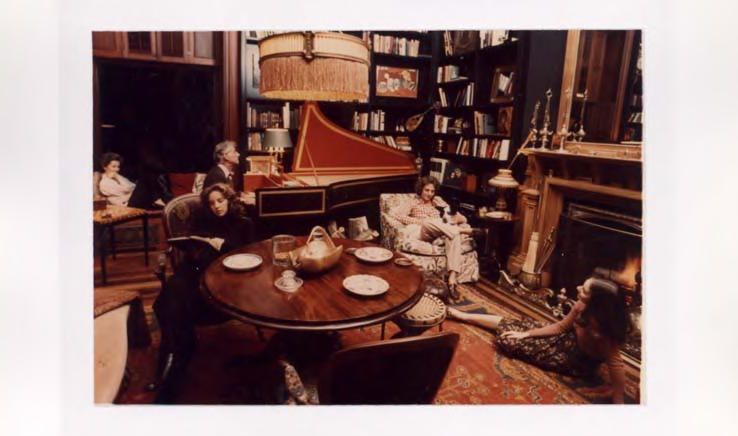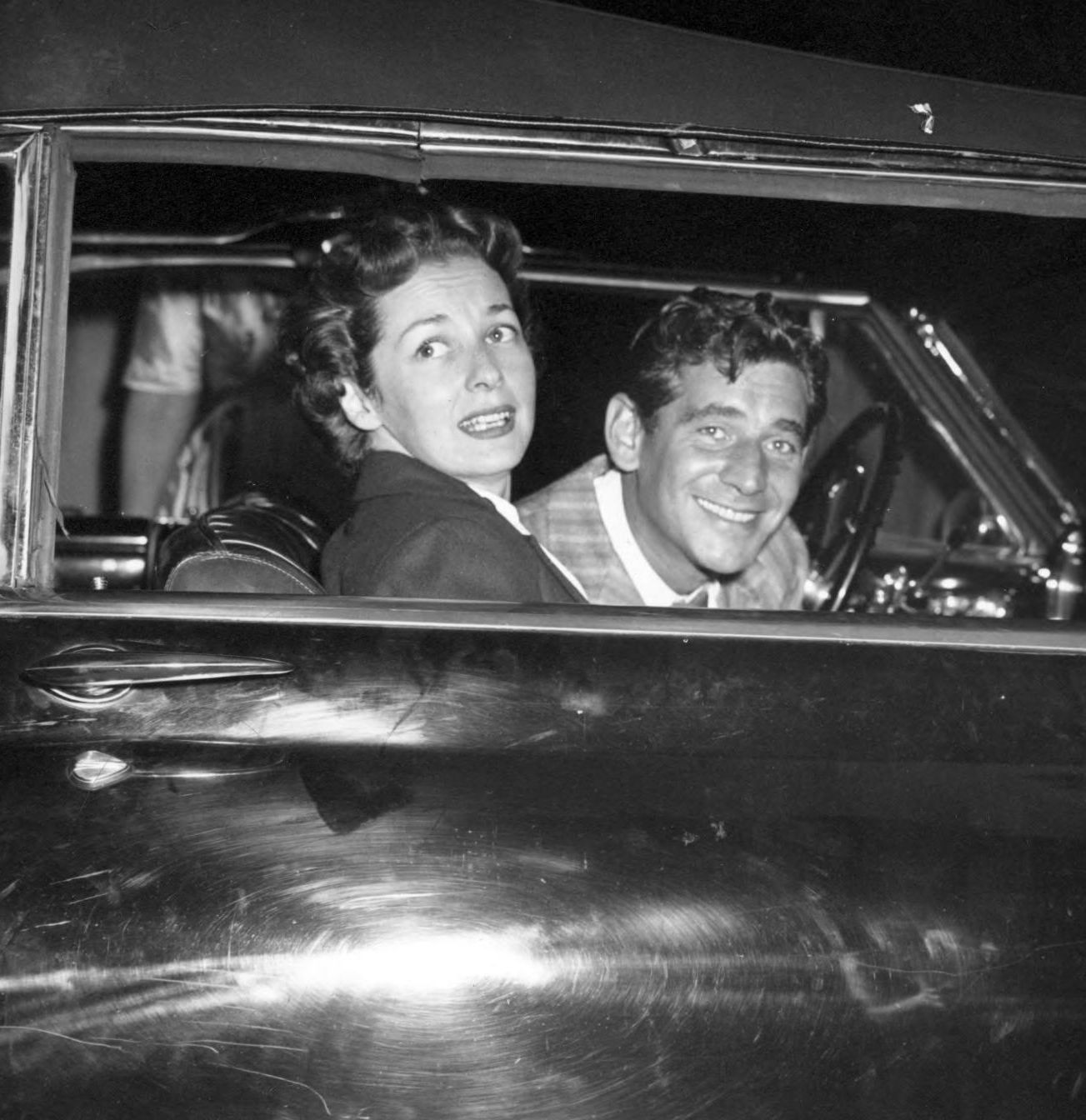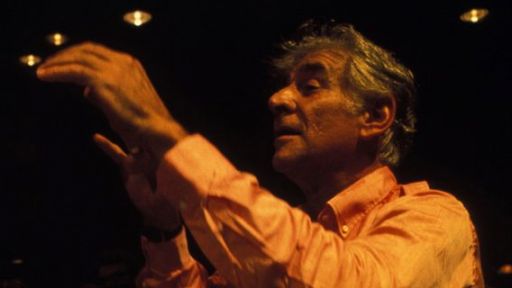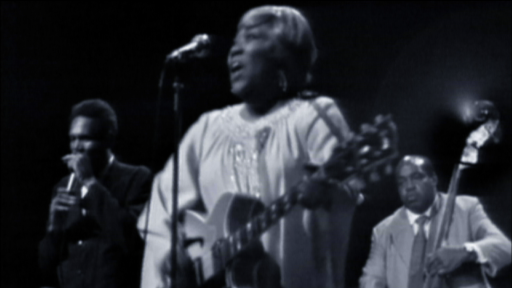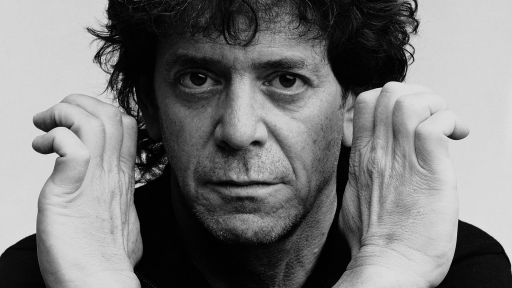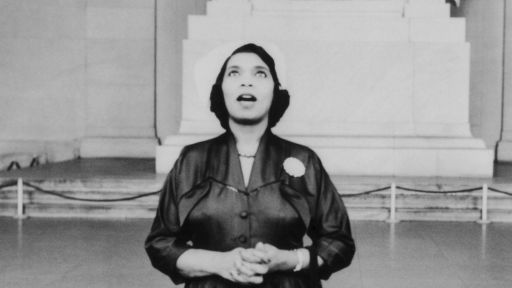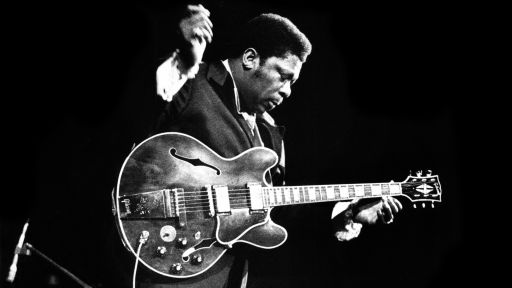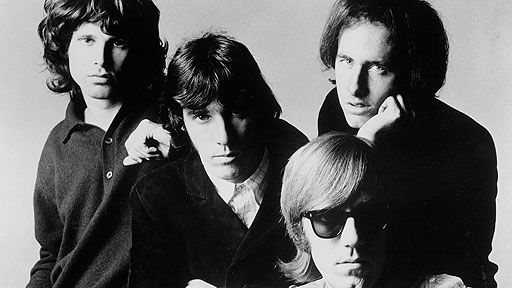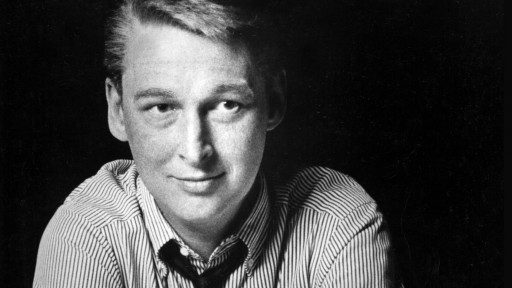What would it be like to see your family life portrayed in a movie?
For siblings Jamie, Alexander and Nina Bernstein, that question has been answered. As the children of composer-conductor Leonard Bernstein and actress Felicia Montealegre, their parents’ lives are the subject of Academy Award-nominated film “Maestro.” Directed by and starring Bradley Cooper, the movie is a portrait of the complicated relationship between the couple from the early days of their courtship through marital challenges and final moments – exploring intimate and controversial aspects of Bernstein’s private life.
In advance of the Academy Awards, Jamie, Alexander and Nina each share their perspectives on their parents’ relationship, their “public” private lives and “Maestro” in this Q&A.
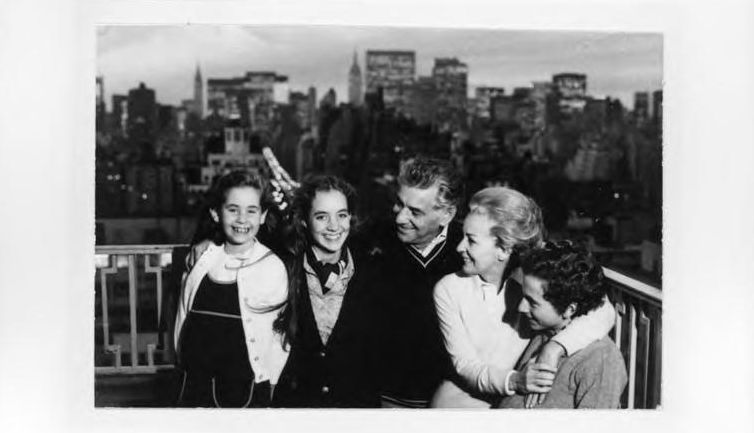
Leonard Bernstein with Felicia, Jamie, Alexander, and Nina on rooftop with New York skyline. Leonard Bernstein Collection, Music Division, Library of Congress. Photographs Series.
What’s it like seeing your personal family life told on screen?
Nina Bernstein Simmons: It’s nothing less than surreal to see us represented on-screen, especially in the Fairfield scenes because that is our actual house. And it’s terribly confusing to have these magnificent actors, Bradley and Carey [Mulligan], looking and sounding so much like our parents, but in actuality being much younger in real life than we are now.
The raw, painful parts are certainly hard to take, but they’re not nearly so hard as they were when they happened.
[Nina Bernstein Simmons is Leonard Bernstein’s youngest daughter. In preserving her father’s legacy, she worked with the Library of Congress on making the Bernstein Archives digitally available to the public.]
https://pbs-wnet-preprod.digi-producers.pbs.org/wnet/americanmasters/archive/interview/nina-bernstein-simmons/
Your parents seemed to have had a turbulent, but loving, relationship. How would you characterize their relationship in your own words?
Alexander Bernstein: They never fought in front of us – barely even a disagreement. I could sense tension at times, but nothing overt. To me, until my teens, all seemed just fine.
[Alexander Bernstein is Leonard Bernstein’s second child. He is president of Artful Learning, Inc., and Vice President and Treasurer of The Leonard Bernstein Office, Inc.]
https://pbs-wnet-preprod.digi-producers.pbs.org/wnet/americanmasters/archive/interview/alexander-bernstein/
Did your father have a favorite maxim?
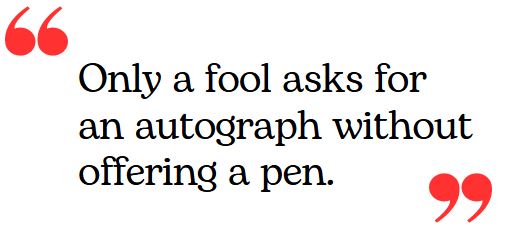 Jamie Bernstein: There were a couple of maxims I remember LB saying:
Jamie Bernstein: There were a couple of maxims I remember LB saying:
“It’s a mitzvah to visit the sick.” LB took this very seriously, and always made time to visit friends and colleagues who were ailing.
“Only a fool asks for an autograph without offering a pen.”
[Jamie Bernstein is an author, narrator, director, broadcaster, and filmmaker. Her 2018 memoir, “Famous Father Girl,” is about growing up in an atmosphere bursting with music, theatre and literature.]
https://pbs-wnet-preprod.digi-producers.pbs.org/wnet/americanmasters/archive/interview/jamie-bernstein-2/
How do you separate your ideas of Bernstein as a father and as an icon?
Nina Bernstein Simmons: On the one hand, it’s perfectly obvious all the time that he was the superstar that he was. But when he was home, all that fell away. He would come home from a tour feeling very grand, indeed. And after a couple of days, he would simmer down. And then you would see him after he got out of bed (maybe 4 pm) and had some breakfast in his bathrobe. It was delightful to chat with him then. And he was, for the most part, always in the mood to laugh and tell jokes. So now, in retrospect, it’s that feeling I carry with me most. And it can be quite startling to be reminded, as with this movie, what an enormous lion of a man he was.
What do you think drove your parents’ creative pursuits?
Alexander Bernstein: They were both curious, imaginative, courageous, engaged people. They both loved all forms of art, and delighted in participating with others. Artists tend not to think in those terms – they aren’t just “driven,” there’s simply nothing else they can imagine doing.
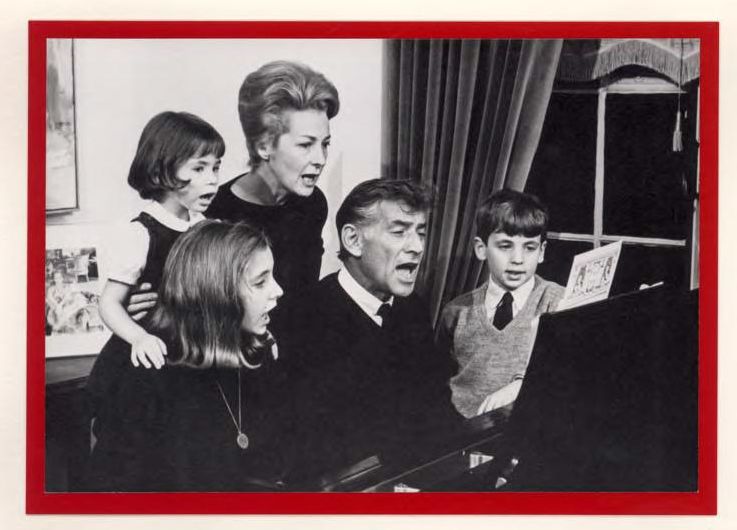
Leonard Bernstein with Felicia, Jamie, Alexander, and Nina. From: Leonard Bernstein Collection, Music Division, Library of Congress. Photographs Series.
Your father was an advocate for so many different causes, what’s misunderstood about those efforts?
Jamie Bernstein: It’s not so much that LB’s efforts on behalf of various causes were misunderstood; What’s less understood is the degree to which he used his music-making – both as a performer and as a composer – to try to make the world a better place. He was a true Citizen Artist.
What are your thoughts on your father’s involvement in what was derisively labeled the “radical chic?”
Jamie Bernstein: My siblings and I have the heavy-hearted feeling that we will spend the rest of our lives correcting the record for this perennially misunderstood and mischaracterized event and its outcome. But here goes, one more time:
Our mother, Felicia Montealegre Bernstein, held a fundraising event for members of the Black Panther Party who were in jail awaiting trial for what turned out to be completely trumped-up charges. The judge threw the case out on day one of the trial – But until that day finally rolled around, the men stuck in jail needed legal aid, and their families needed care. These were what our mother’s fundraiser was for. It was a private, serious event, and no press was invited. But a few sneaked in. One of them was Tom Wolfe, an ambitious young journalist at New York magazine. He observed every detail of the event and then cast it all in a mean-spirited, satirical light for an article that was subsequently expanded into a notorious book called “Radical Chic.” Not only did he mischaracterize our mother’s event as a frivolous party; he referred to it as “Lenny’s party.” It’s hard for me to convey how much damage this snarky little piece of writing generated for our family. Our parents lost friends and colleagues. Relatives were furious at us. Our dad received piles of hate mail. The Jewish Defense League picketed outside our building – because they viewed the Panthers as anti-Israel. What a mess it all was.
Only years later in the 1980s, through the Freedom of Information Act, was my father able to view his own FBI file. In those pages, our family discovered who had cranked out all that hate mail: why, it was the FBI. And those Jewish Defense League picketers outside our building? The group was bristling with FBI plants. The FBI had undoubtedly been thrilled to have been handed this nifty opportunity to sow discord between Jews and Blacks, thereby neatly disempowering both groups. That was straight out of J. Edgar Hoover’s playbook.
Growing up, did you ever feel like you were in a movie?
Alexander Bernstein: No.
Did your relationship with your father change after your mother passed away?
Nina Bernstein Simmons: It did. Daddy and I became close in a way we never had been. I was in high school, reading a lot of Shakespeare, and he loved getting into it with me. At one point, he toyed with the idea of directing a production of King Lear with Richard Burton! I have all his ideas jotted down in my paperback Kittredge edition. Mercifully, that idea was retired. When I brought friends home from college, we would stay up very, very late discussing . . . everything.
It was exhausting, but unforgettable.
When materials were donated to the Library of Congress, was there anything surprising you discovered in the family archives?
Alexander Bernstein: It was fascinating to read the correspondence – for instance, between my father and David Oppenheim. Their clear affection for one another, their search for ways to deal with the physical attraction, the comparing of notes on psychotherapy of various kinds . . .
People seem to either love or hate “Maestro” – why do you think that is? Is it possible to contain your father’s story in one movie?
Jamie Bernstein: These are two separate questions:
1. Most viewers are deeply moved by the film. But there has been pushback. Ironically, Bradley Cooper elicits the same kind of resentment that Leonard Bernstein did; people (and critics, especially) love to knock down overly gifted, handsome and successful heroes off of their pedestals.
2. Of course it’s impossible to contain all of LB’s story in one film. And Bradley Cooper had no intention of doing such a thing. As he’s often said: if you want to know all about Bernstein, there are many excellent documentaries and biographies. Cooper was up to something else entirely. His film examines one slice of Bernstein’s life. It’s a portrait of a marriage, not a biopic.

